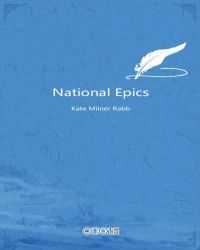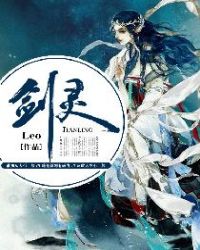SELECTIONS FROM THE DIVINE COMEDY.
您可以在百度里搜索“National Epics 艾草文学(www.321553.xyz)”查找最新章节!
SELECTIONS FROM THE DIVINE COMEDY.
COUNT UGOLINO.
In the frozen lake of Cocytus in the ninth circle of the Inferno, where were punished the traitors to kindred, country, friends, or benefactors, the poets beheld Count Ugolino, a Guelph, who, because of his treachery, was taken prisoner by the people with his sons and grandsons and thrust into a tower, where they were left to starve. Ugolino was frozen in the ice, where he forever gnawed the head of the Archbishop Ruggieri, his enemy. At the request of Dante he stopped to tell his story.
"Thy will 'tis I renew
A desperate sorrow that doth crush my heart
Even before my lips its tale impart.
But if my words may be a seed that, sowed,
Shall fruit of infamy to this traitor bear,
Then, though I weep, speech too shall be my care.
"Who thou may'st be I know not, nor what mode
Hath brought thee here below, but then I glean,
From words of thine, thou art a Florentine.
That I Count Ugolino was, know thou,
And this the Archbishop Ruggieri. Why
I will thee tell we are such neighbors nigh.
Needs not to say that him I did allow
A friend's own trusts, but so his treachery wrought;
That first my liberty, then my life, it sought.
"But that which thou canst not have hitherto learned
That is, how cruel was my death, I thee
Will tell; judge thou if he offended me.
Within the Mew, a tower which well hath earned
From me its name of Famine, and where wrath
Yet others waits, a narrow opening hath,
Through which of several moons the broken light
Had strayed, when unto me in sleep was sent
A dream whereby the future's veil was rent.
"This ill dream me this man set forth in might:
He wolf and whelps upon those mounts pursued
Which Pisa 'twixt and Lucca's domes obtrude.
Hounds had he with him, lank and shrewd and keen,
And in their front Gualandi's sword had place,
Sismondi's lash and sour Lanfranchi's mace.
Father and sons' undoing soon was seen;
Methought the sharp fangs on them closed, and tore
Their flanks, which now the hue of crimson wore.
"Before the dawn I woke and heard my sons,
The helpless children with me, in their sleep,
Cry out for bread, cries pushed from sobbings deep.
Right cruel art thou, if not e'en now runs
To tears thy grief at what my heart forbode,
If tears of thine at misery's tale e'er flowed.
And then they woke, and came the hour around
Which had been wont our scanty meal to bring;
But from our dreams dumb terrors seemed to spring;
"When from below we heard the dreadful sound
Of nails; the horrible tower was closed; all dumb
I let my gaze into my sons' eyes come.
Weep I did not, like stone my feelings lay.
They wept, and spoke my little Anselm: 'Pray
Why lookest so? Father, what ails thee, say?'
Shed I no tear, nor answered all that day
Nor the next night, until another sun
His journey through the wide world had begun.
"Then came a small ray into our sad, sad den,
And when in their four faces I beheld
That carking grief which mine own visage held,
Mine hands for grief I bit, and they, who then
Deemed that I did it from desire to eat,
Stood up each one at once upon his feet,
And said: 'Father, 'twill give us much less pain
If thou wilt eat of us: of thee was born
This hapless flesh, and be it by thee torn.'
"Myself I calmed that they might not so grieve;
Mute that day and the next we were; O thou
Most cruel earth, that didst not open now!
When we the fourth day's agony did receive
Stretched at my feet himself my Gaddo threw,
And said: 'My father, canst thou nothing do?'
There died he, and, as now sees me thy sight,
The three I saw fall one by one; first died
One on the fifth; deaths two the sixth me tried.
"Then blind, I groped o'er them to left and right,
And for three days called on their spirits dead;
Then grief before the power of fasting fled."
Wilstach's Translation, Inferno. Canto XXXIII. National Epics




